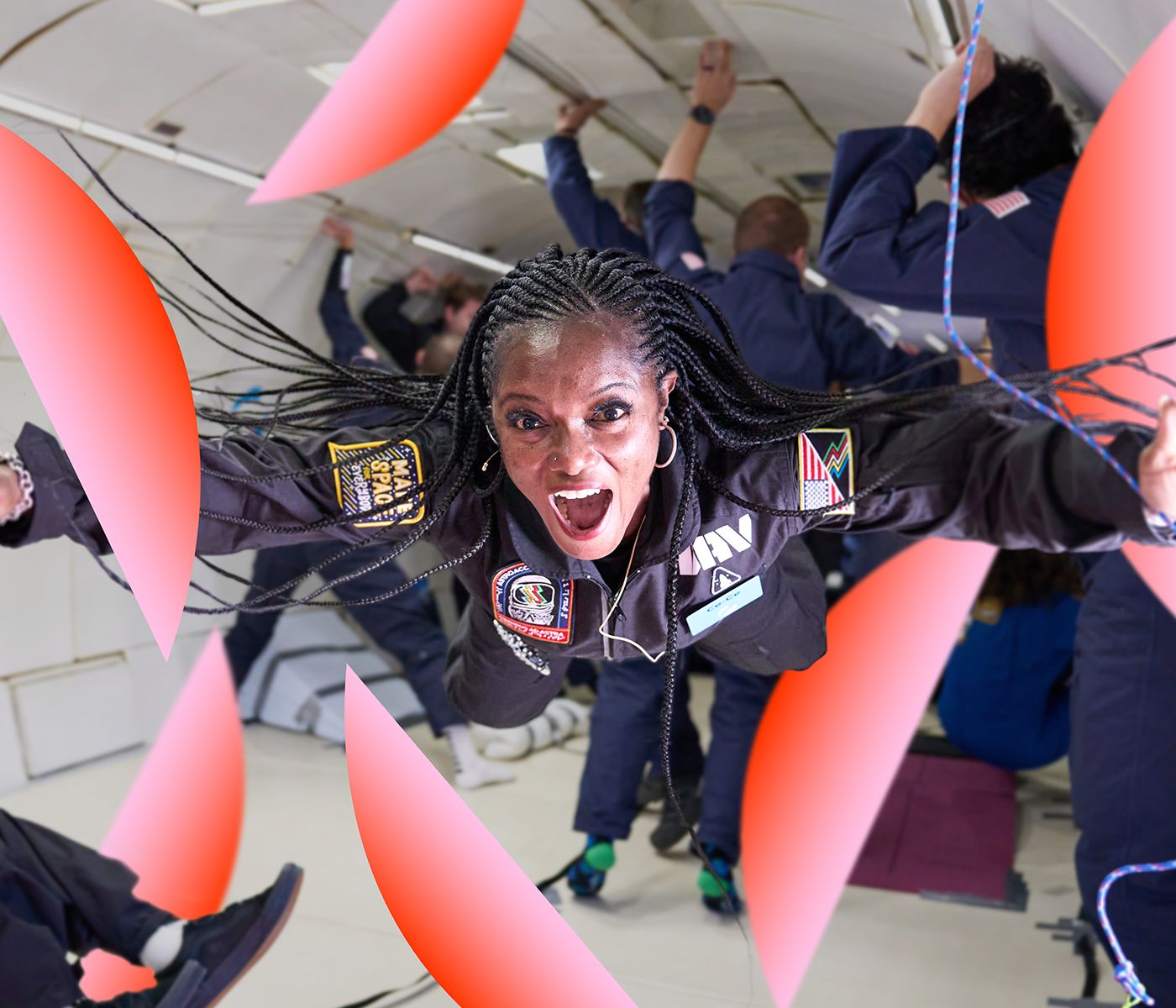
Deep Dive
Shownotes Transcript
Since the beginning of the space program, we’ve expected astronauts to be fully-abled athletic overachievers—one-part science geeks, two-part triathletes—a mix the writer Tom Wolfe called “the right stuff.”
But what if, this whole time, we’ve had it wrong?
In this episode from 2022, reporter Andrew Leland joins blind Linguistics Professor Sheri Wells-Jensen and a crew of 11 other disabled people. They embark on a mission to prove not just that they have what it takes to go to space, but that disability gives them an edge. On Mission AstroAccess, the crew members hop on an airplane to take a zero-gravity flight—the same NASA uses to train astronauts. With them, we learn that the challenges to making space accessible may not be the ones we thought. And Andrew, who is legally blind, confronts unexpected conclusions of his own.
By the way, Andrew’s new book is out. In The Country of the Blind: A Memoir at the End of Sight) (https://zpr.io/nLZ8H)), Andrew recounts his transition from sighted to blind. Suspended between anxiety and anticipation, he also begins to explore the many facets of blindness as a culture. It’s well worth a read.
Read the article by Sheri Wells-Jensen, published in The Scientific American in 2018. “The Case for Disabled Astronaut)” (https://zpr.io/nLZ8H)).
*This episode was reported by Andrew Leland and produced by María Paz Gutiérrez, Matt Kielty and Pat Walters. Jeremy Bloom contributed music and sound design. Production sound recording by Dan McCoy.*Special thanks to William Pomerantz, Sheyna Gifford, Jim Vanderploeg, Tim Bailey, and Bill Barry
Our newsletter comes out every Wednesday. It includes short essays, recommendations, and details about other ways to interact with the show. Sign up) (https://radiolab.org/newsletter)!
Radiolab is supported by listeners like you. Support Radiolab by becoming a member of The Lab) (https://members.radiolab.org/) today.
* *
Follow our show on Instagram), Twitter) and Facebook) @radiolab, and share your thoughts with us by emailing [email protected])Leadership support for Radiolab’s science programming is provided by the Gordon and Betty Moore Foundation, Science Sandbox, a Simons Foundation Initiative, and the John Templeton Foundation. Foundational support for Radiolab was provided by the Alfred P. Sloan Foundation.
